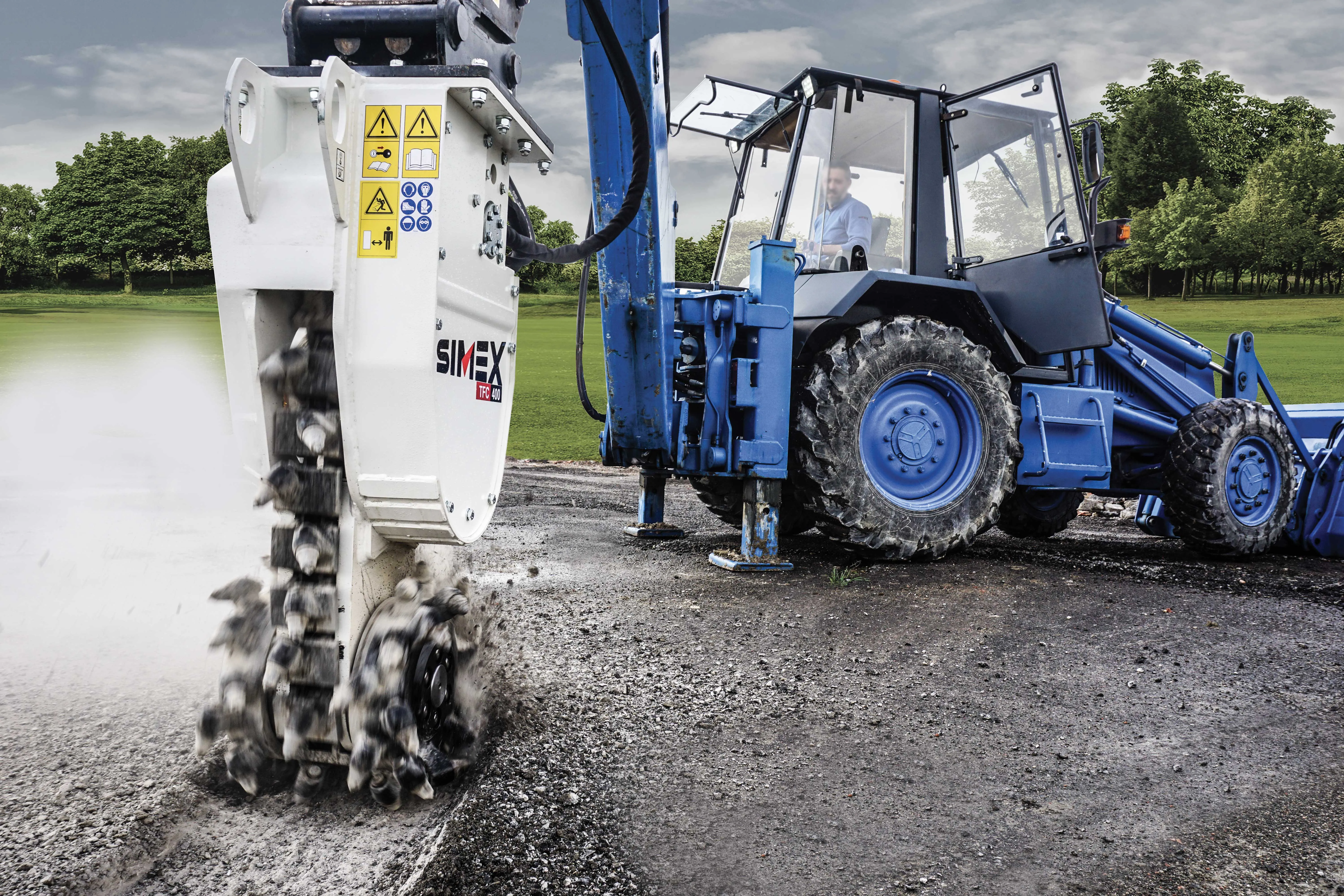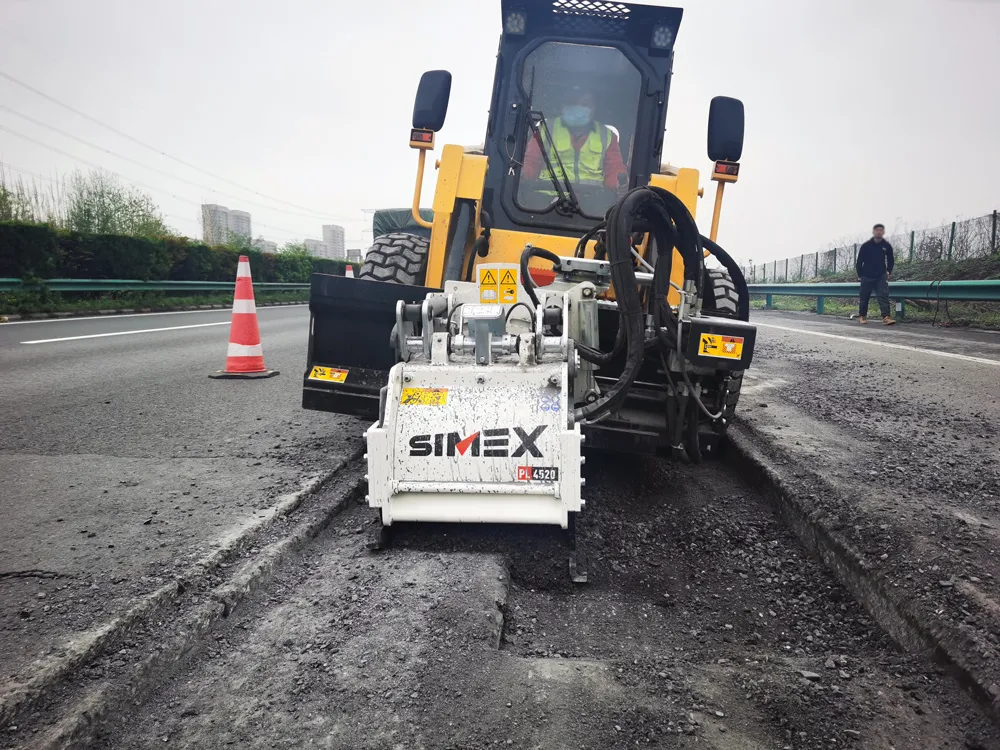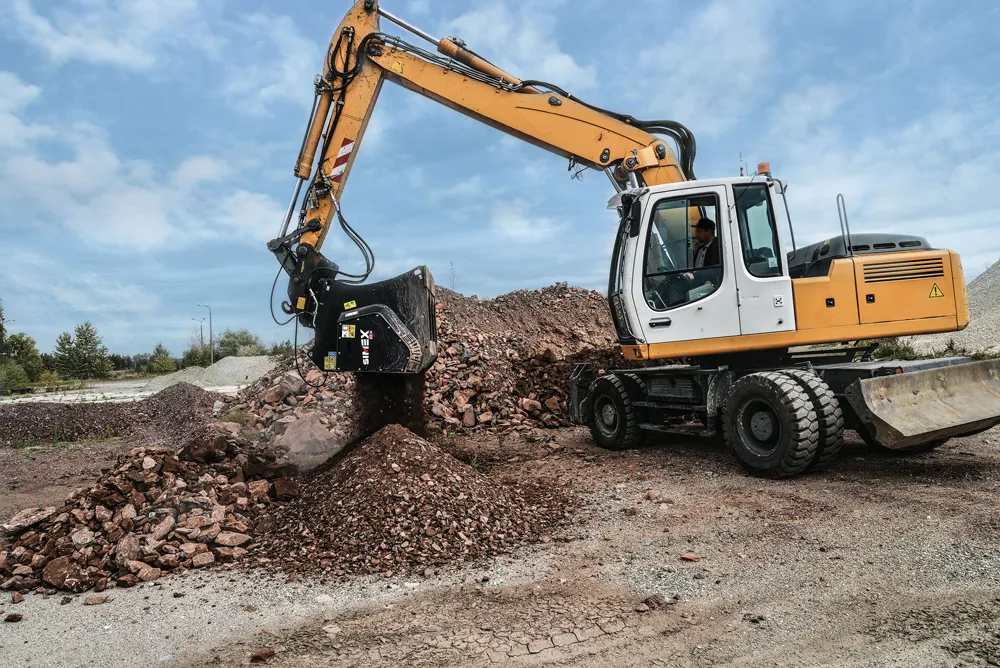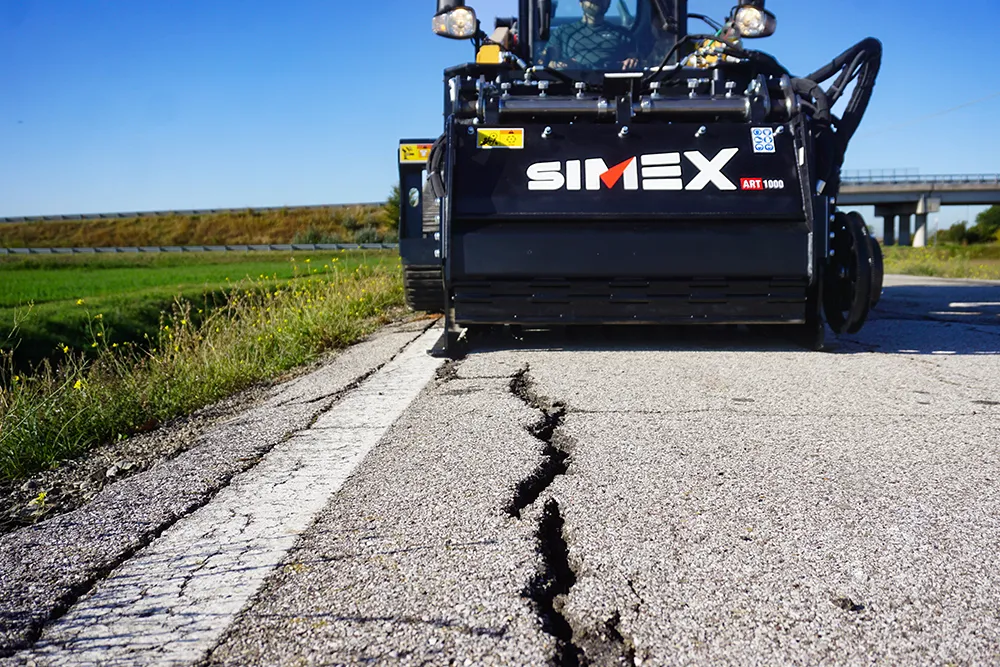
Simex picked up the award in the attachments category with its new TFC 400, a continuous milling-cutting machine with double drum and central chain. The company says that the 500kg TFC 400 is the ideal attachment for excavating narrow trenches, in-depth milling on vertical walls and tunnel roofs, as well as profiling flat walls.
The drum diameter (cutting profile) is 520-420mm and the cutter heads with continuous cutting are designed for 6-14tonne excavators. Maximum oil pressure needed is 300 bar. Importantly, the unit operates at a much lower noise level, making it acceptable for use in urban areas.
The past year has seen Simex investing in new production facilities – a 7,000m² structure containing a large area for loading, unloading and sorting of materials, a warehouse with high storage capacity and new offices. A second phase will include a new painting plant.









